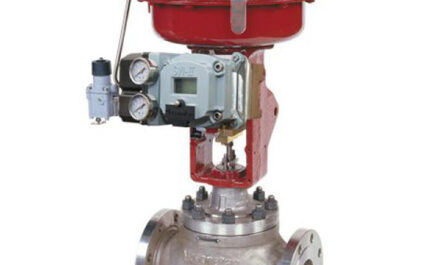As water emerges as one of the most important natural resources in the coming decades, efficient water management will be crucial. One of the key tools for achieving this is the installation of water meters in homes and businesses. Water meters play a vital role in promoting water conservation by increasing awareness about consumption.
What is a Water Meter?
A water meter is a device that measures the quantity of water used by residential or commercial customers. Modern water meters work on the principle of displacement or velocity. Displacement meters measure the volume of water by counting the revolutions of an internal turbine that is turned by the water flow. Velocity meters use ultrasonic or electromagnetic technology to measure the speed of water passing through the meter.
Most water meters have an analogue display that shows the accumulated water usage in units such as cubic meters or litres. Some advanced smart water meters also have digital readouts and can transmit meter readings remotely via radio signals or cellular networks. This enables utilities to gather data efficiently without manual readings.
Importance of Installing Water Meters
Water Conservation
One of the primary objectives of installing water meters is to promote conservation. When people are aware of the exact quantity of water they consume, they tend to curb wastage. Unmetered connections often lead to wasteful usage as there is no direct incentive to save water. Meters provide real-time feedback about usage patterns and help identify areas where water can be saved. This can significantly reduce overall demand.
Discouraging Illegal Usage
Water meters also discourage illegal usage activities like water theft. Unmetered connections make it difficult for utilities to detect diversions and leakage. Meters provide a verifiable record of authorized consumption, which deters illegal siphoning or branching off the main line. This ensures a fair distribution of water resources.
Generating Revenue
Water meters allow utilities to charge customers based on actual consumption rather than using flat tariffs. This makes the pricing system more equitable as heavy users end up paying higher rates in proportion to their demand. This metered revenue helps utilities improve infrastructure and expand supply to meet growing needs. For consumers also, metered billing promotes a sense of value for the water they receive.
Types of Water Meters
Residential Water Meters
Residential meters are typically small 5/8 inch or 3/4 inch units installed near the water entrance of houses. The most common types include:
– Verticle Turbine Meters: A versatile mechanical meter suitable for low to medium flow applications.
– Compound Meters: Consists of two measuring chambers for high accuracy across a wide flow range. Often used for multi-residential complexes.
– Ultrasonic Meters: Advanced non-intrusive type with no moving parts that can remotely transmit readings. becoming increasingly popular.
Commercial and Industrial Water Meters
Larger meters from 1-2 inches are used to measure usage in commercial buildings, industries, farms etc. depending on the flow requirements. Important types are:
– Fire Service Meters: Specially designed turbines to handle high pressure spikes during fire events.
– Turbine and Propeller Meters: For moderate to high flows, with various end connections as per pipe dimensions.
– Electromagnetic Meters: Non-intrusive technology suitable for dirty or corrosive water applications.
– Displacement and Mixed Flow Meters: For very high flows above 1500 m3/hr in large complexes and irrigation projects.
Benefits of Smart Water Meters
Automatic Meter Reading
Smart water meters have advanced technologies like radio frequency modules or cellular chipsets installed. This enables automatic remote collection of meter readings without manual visits. Utilities can now efficiently gather data from thousands of points without manpower intensive reading rounds. The data is immediately available for billing, analysis and leak detection.
Real-Time Usage Insights
Customers can access their real-time or periodic water usage details through web portals. This level of transparency creates awareness about patterns and helps identify wastage. Users get timely alerts in case of abnormal consumption due to leaks which can be fixed early.
Analytics and Leak Detection
Precise usage data from smart meters allows utilities to analyze trends, losses, non-revenue water and peak demand patterns on a large scale. Sophisticated algorithms can detect minute changes indicating leaks much before they are visible. Thousands of litres are saved every year through early detection.
Advance Billing Options
Many smart meter projects come with a mobile app interface for consumers. Features like e-billing, online bill payments, consumption tracking and two-way communication simplify processes. Pre-paid or consumption-based dynamic tariff models become feasible based on real-time usage.
Infrastructure Management
Utilities gain powerful Network Monitoring Systems with smart meter rollouts. Utilities now have end-to-end visibility of the entire water network. Issues like pressure problems or contamination can be addressed early. Remote valve controls enable efficient distribution management.
With the above advantages, more and more urban local bodies are undertaking citywide smart metering modernization programs. Along with water audit plans, it helps achieve efficient and sustainable water management for a greener future. Public participation through regular awareness makes these initiatives truly impactful. As the resource crunch rises globally, smart water meters will play a defining role.
To conclude, water meters are highly useful devices in the quest for efficient and equitable water distribution. They empower both utilities and end consumers through data-driven insights. While ensuring commercial viability of water supply services, meters above all promote conscious usage through transparent consumption feedback. With smart technology advancements, they are becoming a key enabler for integrated water resource management. As water stress rises to alarming levels, extensive deployment of water meters helps optimize existing resources through behavioral changes and technical improvements. Their role will be increasingly important for the sustainable development of urban infrastructure globally.
*Note:
1. Source: Coherent Market Insights, Public sources, Desk research
2. We have leveraged AI tools to mine information and compile it


